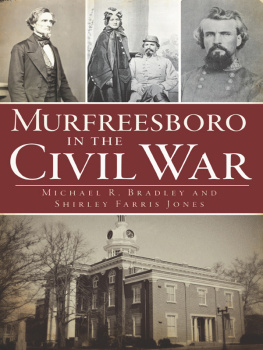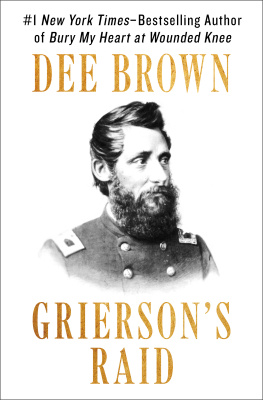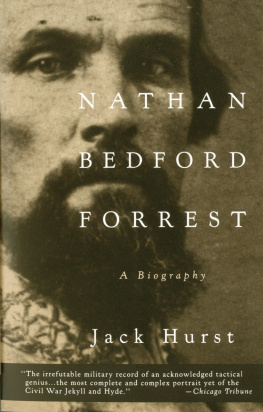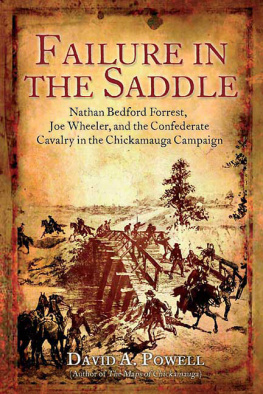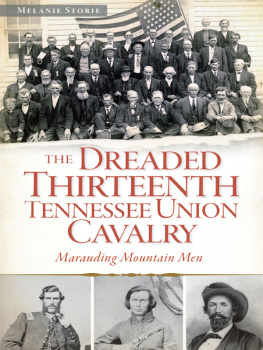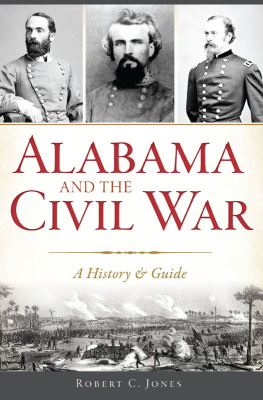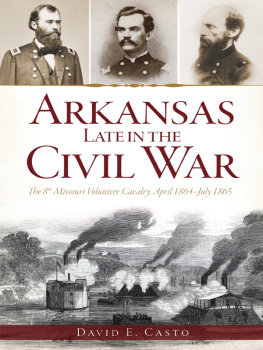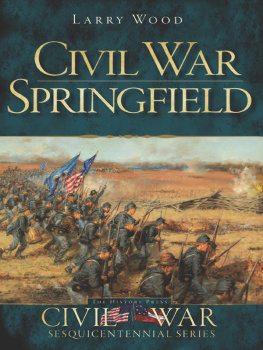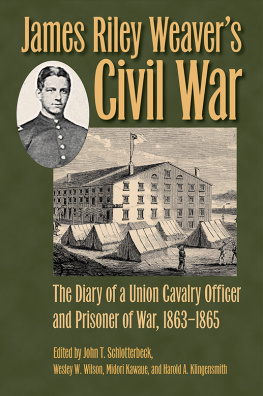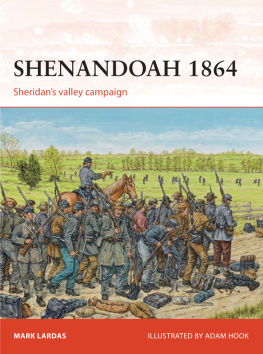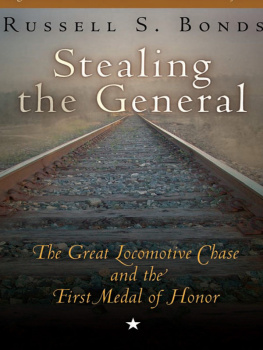For Bob and Cheryl.BEAT! beat! drums!blow! bugles! blow!
Through the windowsthrough doorsburst like a ruthless force,
Into the solemn church, and scatter the congregation.
Into the school where the scholar is studying;
Leave not the bridegroom quietno happiness must he have now with his bride.
Nor the peaceful farmer any peace, ploughing his field or gathering his grain.
So fierce you whirr and pound you drumsso shrill you bugles blow.
Beat! Beat! Drums!
from Drum Taps, Walt Whitman, 1865
PREFACE
Even with the most vivid of imaginations its hard to visualize the largest body of cavalry ever assembled on the American continent moving deep into enemy-occupied territory with the speed and audacity of Wilsons Raiders in their expedition of 1865. Yet that is precisely what happened in the closing months of the American Civil War, as James Harrison Wilson led 13,480 Union horsemen on a rampage through the heart of Dixie, a land that until then had hardly been touched by the ravages of war yet held the Souths industrial production centers so vital to the Confederacys war effort. To reach and destroy those all-important targets, the raiders traveled a distance of 525 miles through an inhospitable land. Much of it, though rich in iron, was a hilly, barren region, covered with forests of pine and oak, unsuitable for subsistence and inhabited by some of the Souths poorest and most impoverished people. But in the middle of it all was another land, a genteel one, embracing Alabamas Black Belt, where huge plantations sprawled across the rich alluvial soil left by the rivers, producing vast, shimmering fields of cotton from slave labor.
In this book I have attempted to take the reader on a wartime journey through this land. Along the way, into and out of such towns as Tuscaloosa, Selma and Montgomery, many characters will be introducedsoldiers, civilians, men and womenmost of them being just ordinary people experiencing the ferocity of war. Others, though, will need no introduction. They are the politicians, like Jefferson Davis, and generals, such as Ulysses S. Grant, who have made their place in history by a combination of destiny and fate. But all of them, through their letters, eyewitness accounts and journals, tell this story of mounted warfare that destroyed the last of the Confederacys infrastructure along with any shred of hope remaining with its people and their dying cause.
At the time Wilson completed his raid, Americans paid little attention to what many historians have since considered to be the greatest cavalry expedition of the war and the single most important accomplishment of Wilsons career. There were, of course, reasons for this. First, the expedition ended about the same time the war did. So even though Selma, the Souths vital ordnance manufacturing center, and Montgomery, the symbolic cradle of the Confederacy, were taken, the raid did not, in the final analysis, achieve strategic success in ending the war. Whats more, it was lost in the shadows of Lees surrender to Grant and Johnstons surrender to Sherman. Those events, along with the assassination of President Lincoln, dominated the headlines. Finally, because the raid was so dangerous, journalists were forbidden to accompany the fast-moving horsemen. Thus, without newspaper coverage, it received little of the fame associated with other successful campaigns. The sole exception came shortly after the raid, when Wilsons cavalrymen captured Confederate president Jefferson Davis, a feat that instantly attracted the nations attention.
In telling the story of Wilsons Raid, this book centers on two fascinating characters: Wilson, of course, and the man who stood in his path of destruction, Nathan Bedford Forrest. At only twenty-seven years old, Wilson was referred to as the Boy General by his colleagues. Brash, opinionated and brimming with confidence, Wilson was a favorite of Ulysses Grant, who considered him to be one of the armys most talented young officers and a man who could get things done. And it was with Grants support and blessing that Wilson was given permission to lead his horsemen on an independent expedition through the Deep South, proving the young generals belief that cavalry, moving fast and striking hard, could be more effective than infantry in realizing victory.
His rival combatant was the legendary Nathan Bedford Forrest, a formidable opponent by any measure. Semiliterate and without any formal education, military or otherwise, he had a brilliant genius for warfare, and to this day many consider him the greatest cavalry commander who ever lived. After all, no soldier on either side ascended through the ranks from private to lieutenant general, except Forrest. In better times, he was brilliantly successful in victory after victory, but by 1865, circumstances had changed. In this last campaign, he was operating at a great disadvantage. Four years of constant fighting had nearly destroyed his once-great veteran cavalry. The few who remained were joined by conscripts who were mostly young boys and old men, and they were hopelessly outnumbered as they tried to stop Wilsons mounted invasion.
Although this book is clearly not intended to be a biography of Forrest, here it seems only appropriate to say a few words about the man himself. In recent years, Forrest has been a controversial, often derided subject. Indeed, given his character and record, Forrest was bound to attract critics. Many are outraged by his very existence and scornfully cast him as nothing but a slave traderbrutal, bloodthirsty and racist, bent on fighting a reactionary war to preserve white supremacy. And in some measure, those charges are undeniable. But with Forrest, as with any historical character, I think that hindsight should be employed with discretion. In other words, its hardly appropriate to judge a mans beliefs on the issues of his day by the ideological standards of our time. Forrest was born and raised in frontier America, a land where differences were settled with a pistol and slavery was the accepted norm. To survive in that world, he was naturally driven by his times, and violence seemed to be an expected, even moral reaction, as he perceived and understood it. Placing him in his proper context, in the light of his time, Im sure the reader will agree that for whatever else he may have been, Forrest was an exceptional, if not remarkable, man.


